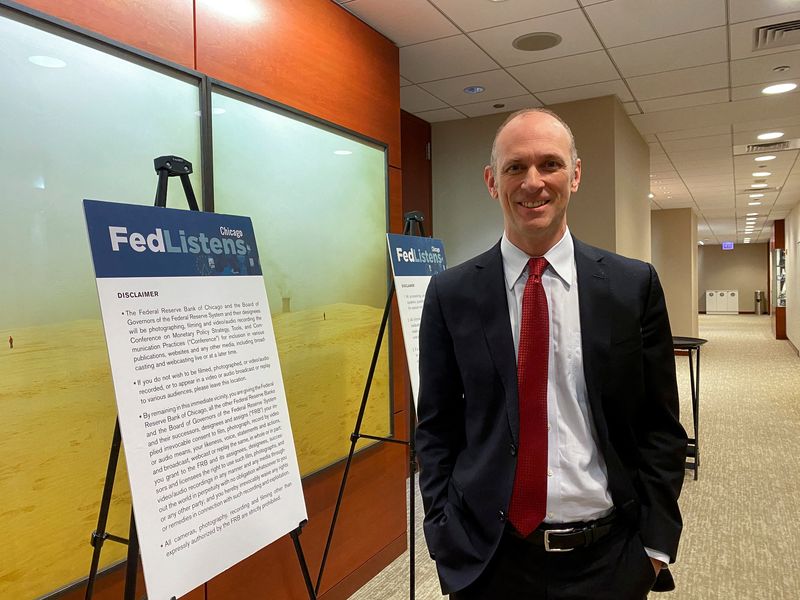(Reuters) - Chicago Federal Reserve President Austan Goolsbee on Thursday said retailers and manufacturers had stockpiled about two weeks worth of items in anticipation of the U.S. dockworkers' strike, but the resulting supply-chain disruptions could lead to higher prices if the labor dispute persists. "It starts as an inconvenience and it gets worse the longer it goes," Goolsbee told Chicago public radio station WBEZ, adding that the strike could mean the "prices of some things might go up."
The International Longshoremen's Association strike, now in its third day, has blocked unloading of container ships along the U.S. East and Gulf coasts, threatening shortages as dozens of ships wait at anchor outside major ports.
Economists have estimated the strike is costing the U.S. economy billions of dollars a day.
Compared to the $20-trillion-plus U.S. economy, Goolsbee noted, "It's not an overwhelming number. It's not that kind of number. It's not a recession."
Meanwhile, Goolsbee said, the Fed has largely brought inflation down to target, and will need to reduce interest rates "by a lot" over the next 12 months or risk over-cooling the economy and the job market.

"We need to get the rates to normal so that it's like your bathtub ... if the water is too hot in the bathtub, you add cold water. But if you feel the tub and the water is how you want it, turn off the cold water or else you know what's going to happen," he said.
The Fed cut its policy rate last month to a range of 4.75%-5.00%, and most of the U.S. central bank's policymakers see further cuts ahead this year and in 2025.